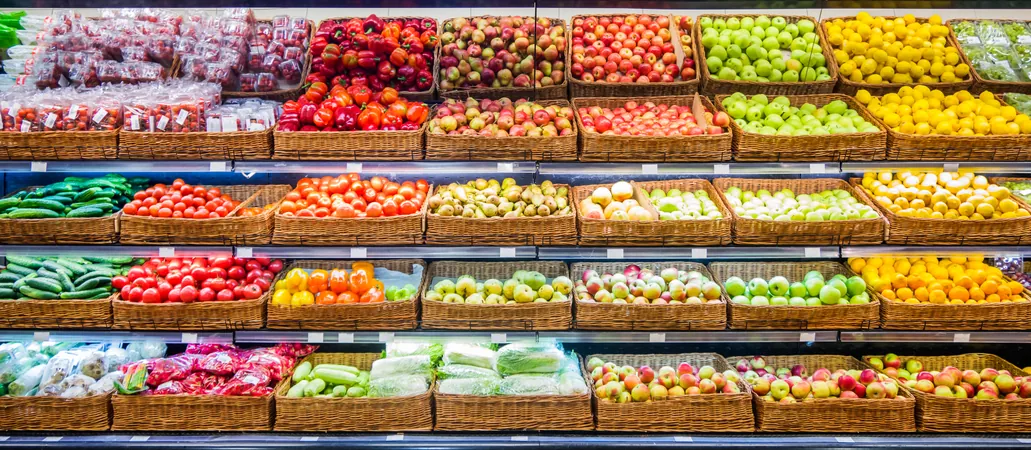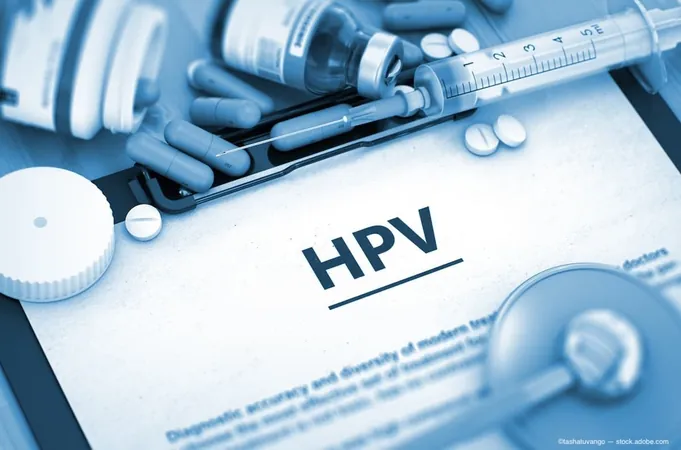
Are Your Grocery Shopping Habits Putting You at Risk for Obesity-Related Cancers? Here’s What You Need to Know!
2025-04-07
Author: Wei Ling
The Hefty Problem of Obesity in America
With over 40% of U.S. adults classified as obese and around 70% considered overweight, the link between obesity and cancer is alarming. According to Dr. Xu, excessive body weight contributes to about 5% of cancer cases in men and 10% in women. Despite efforts to create more grocery stores offering healthy choices in low-income neighborhoods—a common policy response—the anticipated improvements in diet quality and health outcomes have fallen short.
A New Approach to Understanding Consumer Behavior
To better understand the complex behaviors surrounding food choice, researchers analyzed GPS mobility data from SafeGraph, covering shopping habits from 2018 to 2019. They mapped nearly 359,000 grocery and food retail locations across the U.S., categorizing them into healthy options (like grocery stores and farmers’ markets) and unhealthy sources (such as fast-food joints and convenience stores). The study then compared this data with obesity-related cancer mortality statistics from the CDC spanning 2015 to 2020.
What they found was startling: individuals often traveled outside their immediate neighborhoods to shop for food, significantly complicating the effectiveness of simply adding more healthy grocery stores in their vicinity. “Tracking where individuals go has shown to be a much stronger predictor of obesity-related cancer mortality than just their location,” explained Dr. Xu.
The Activity-Based Index: A Game Changer
The team developed an innovative activity-based index, which effectively predicted obesity-related cancer risk at twice the capability of traditional methods that simply focus on location. This finding indicates a pressing need to deepen our understanding of human behavior when it comes to food shopping—a detail often overlooked in conventional health studies.
Socioeconomic and demographic factors also played significant roles: the connection between food retailer visits and cancer mortality was more pronounced in Hispanic communities and among individuals of higher socioeconomic status. Dr. Peter Chen, a co-author of the study, noted that those with better financial means are more likely to purchase healthier options, pointing to income as a critical factor in food decisions.
Rethinking Policy for Better Health
With digital tools like GPS data at their disposal, the researchers advocate for a fundamental shift in public policy. “Traditional approaches focusing solely on food deserts may not be enough,” stated Dr. Xu. “Our findings suggest we need to concentrate on individual shopping behaviors. This could lead to more effective health policies aimed at reducing obesity and its related cancers.”
The researchers are now exploring how opening new grocery stores in food deserts affects consumer behavior and health outcomes. They plan to complement their quantitative data with qualitative research methods, such as surveys, to understand the deeper reasons behind individuals’ shopping choices.
Conclusion
In conclusion, if you’re concerned about your grocery shopping habits impacting your health, it might be time to re-evaluate where and how often you shop. The implications of this study could very well reshape the future of public health strategies. Stay tuned for more insights as this research unfolds—it could save lives!




 Brasil (PT)
Brasil (PT)
 Canada (EN)
Canada (EN)
 Chile (ES)
Chile (ES)
 Česko (CS)
Česko (CS)
 대한민국 (KO)
대한민국 (KO)
 España (ES)
España (ES)
 France (FR)
France (FR)
 Hong Kong (EN)
Hong Kong (EN)
 Italia (IT)
Italia (IT)
 日本 (JA)
日本 (JA)
 Magyarország (HU)
Magyarország (HU)
 Norge (NO)
Norge (NO)
 Polska (PL)
Polska (PL)
 Schweiz (DE)
Schweiz (DE)
 Singapore (EN)
Singapore (EN)
 Sverige (SV)
Sverige (SV)
 Suomi (FI)
Suomi (FI)
 Türkiye (TR)
Türkiye (TR)
 الإمارات العربية المتحدة (AR)
الإمارات العربية المتحدة (AR)